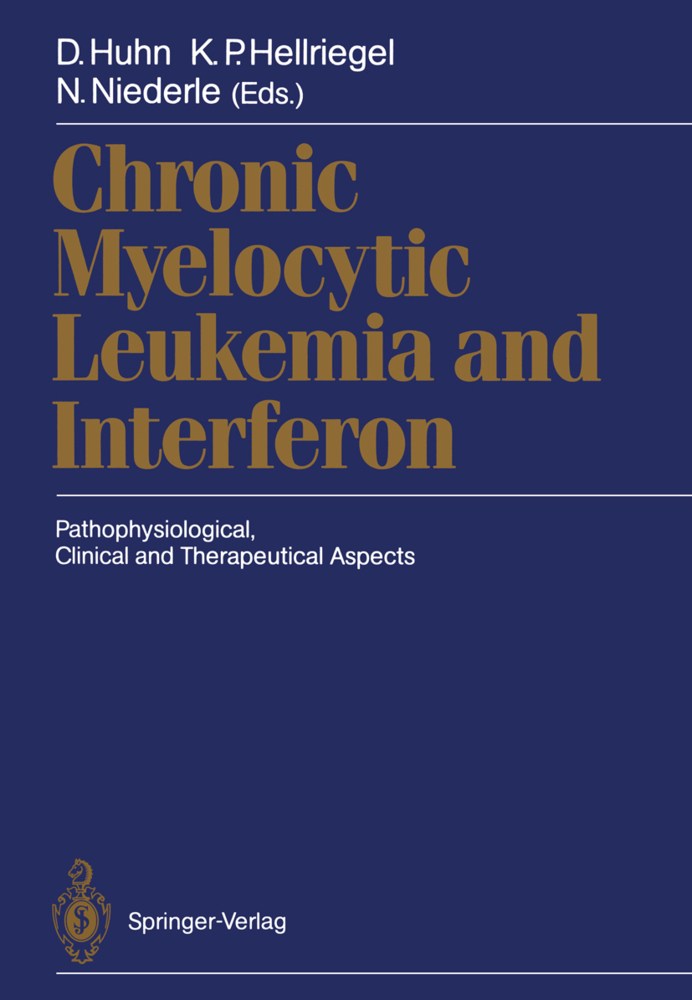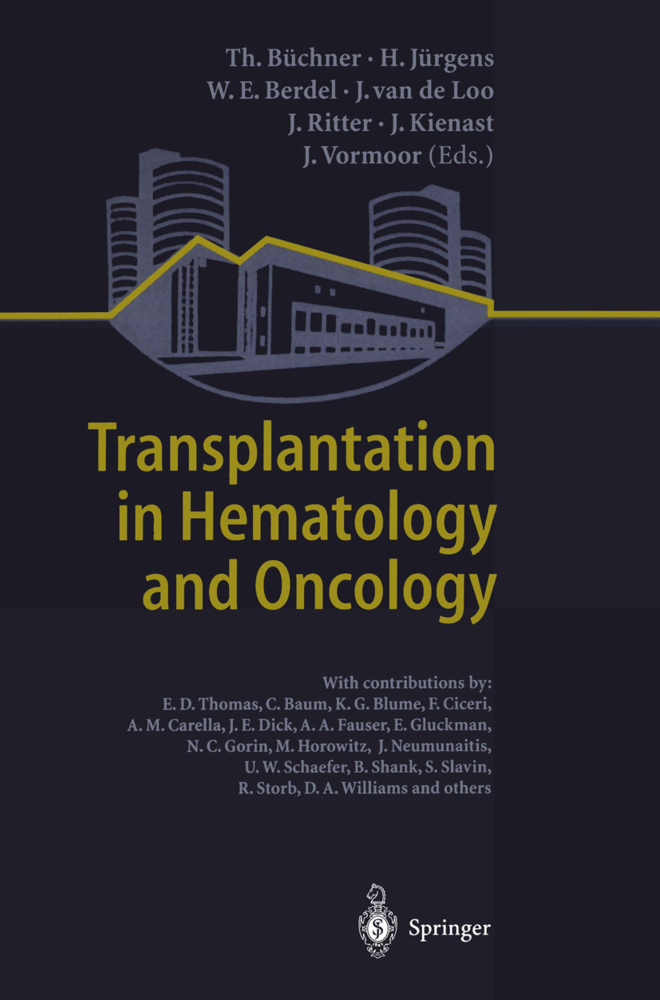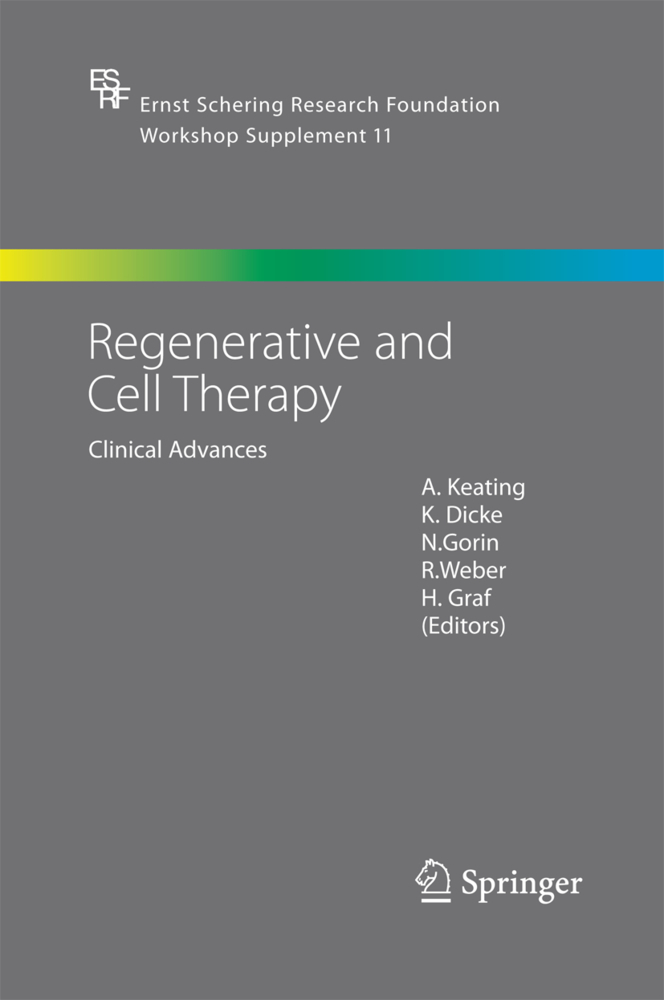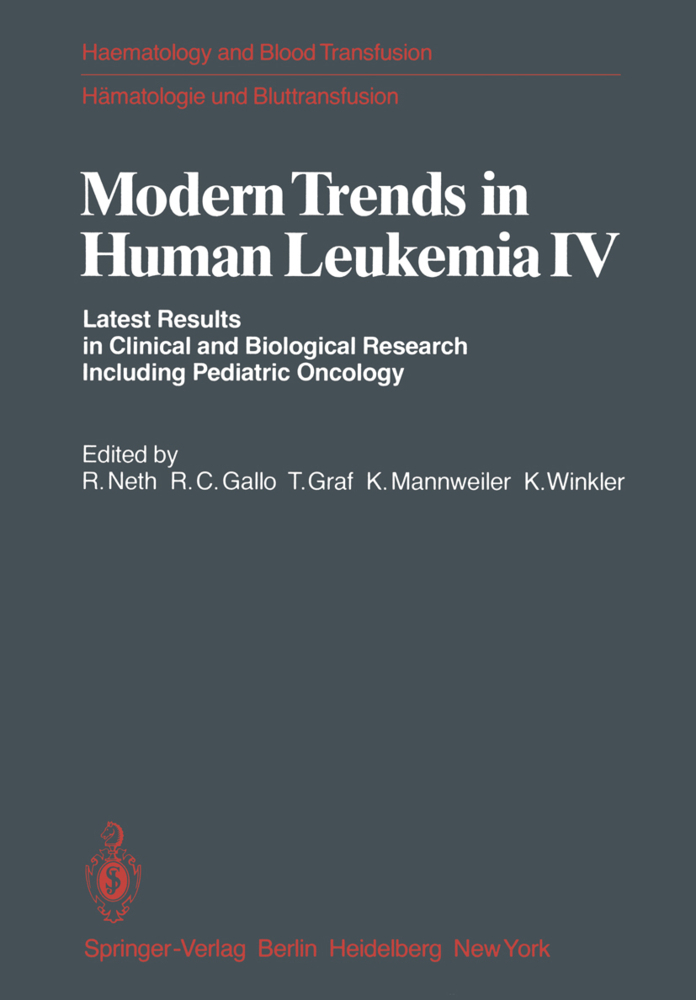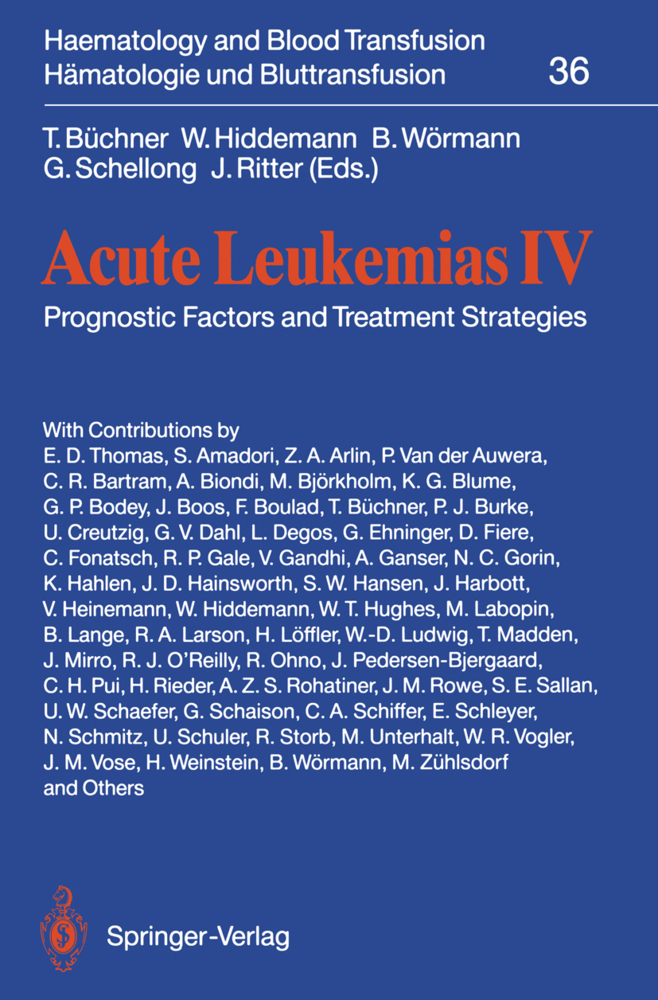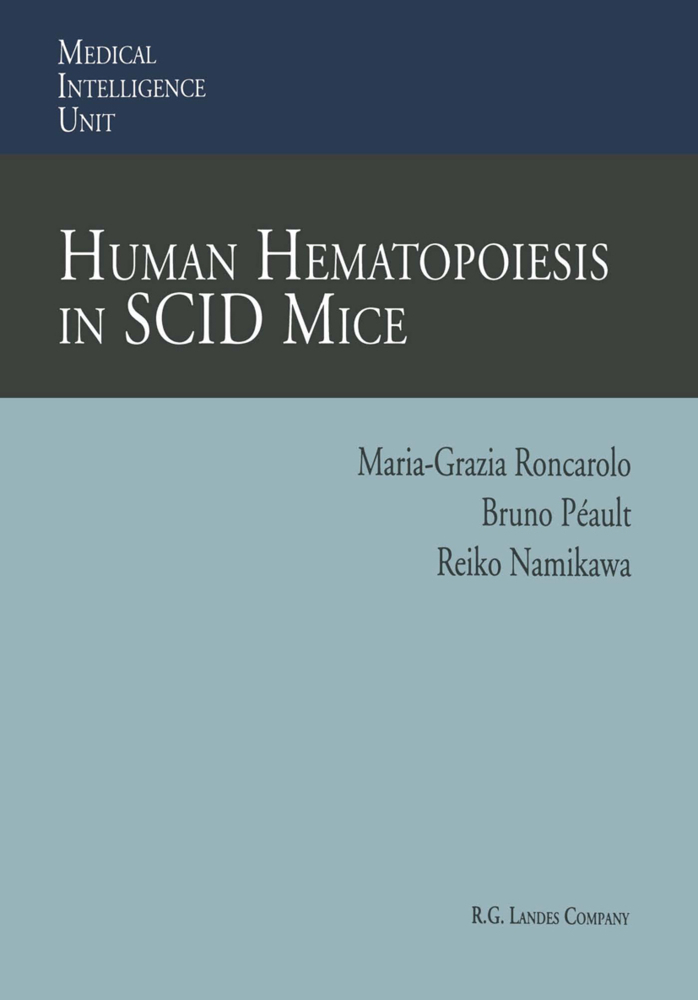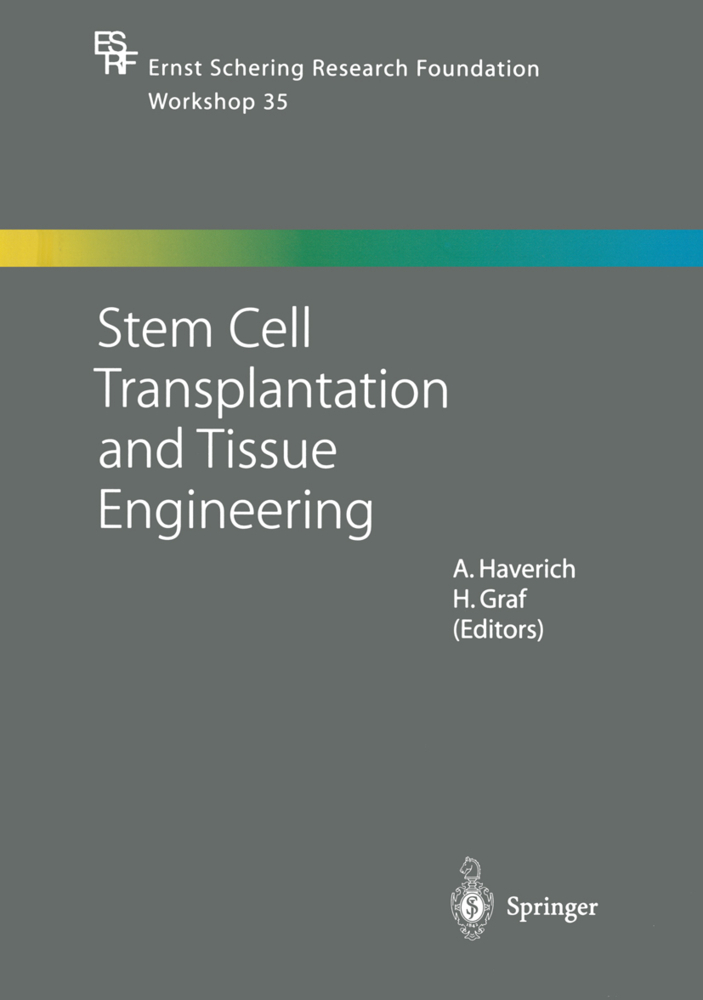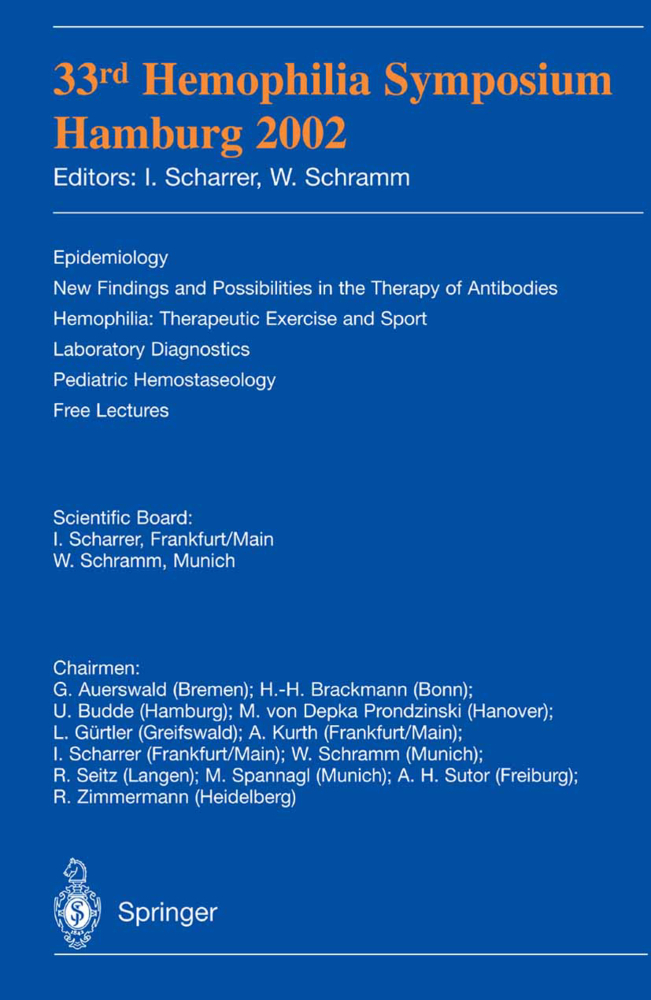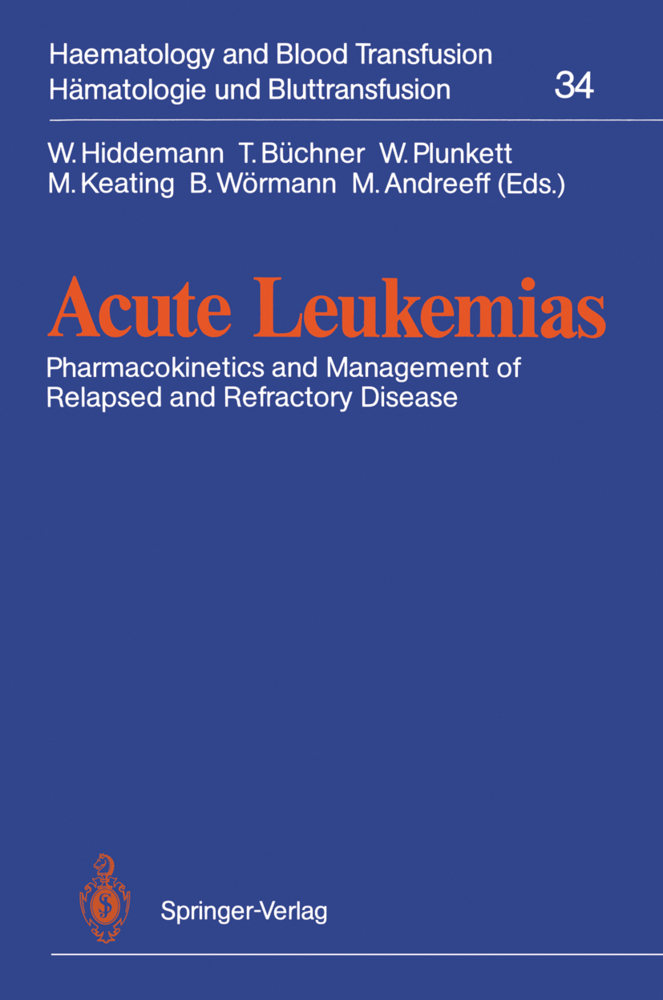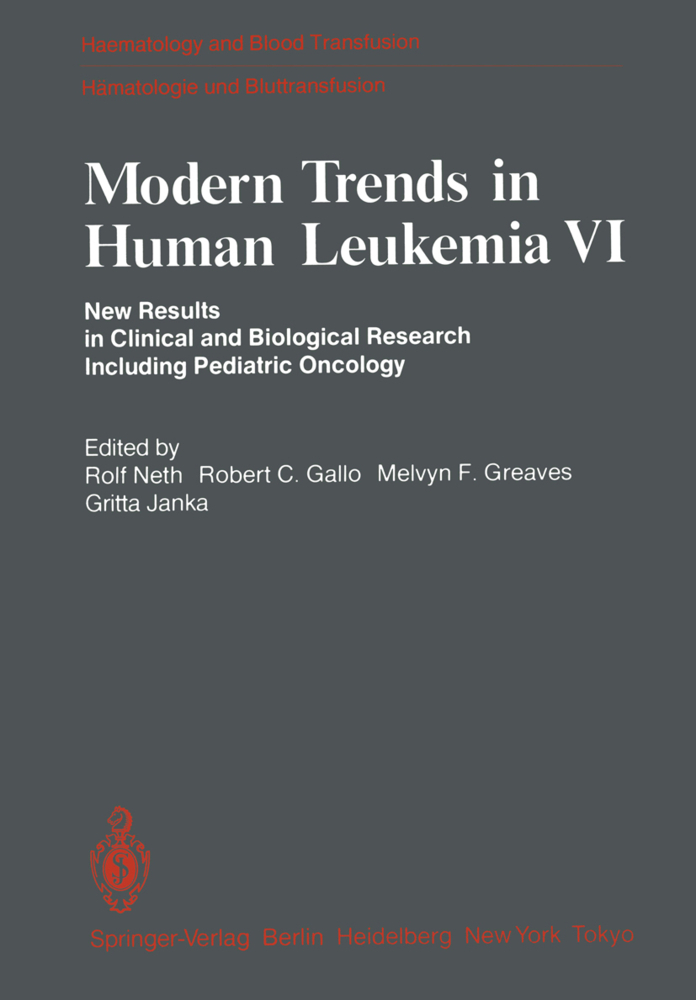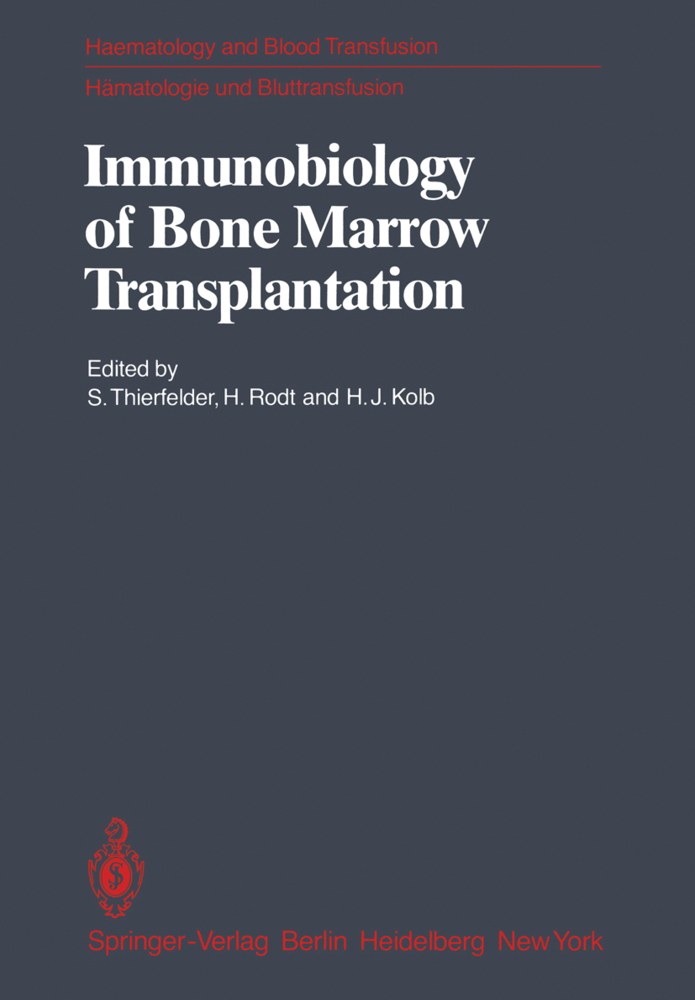Chronic Myelocytic Leukemia and Interferon
Pathophysiological, Clinical and Therapeutical Aspects
Chronic Myelocytic Leukemia and Interferon
Pathophysiological, Clinical and Therapeutical Aspects
Studies on the effect of recombinant human interferon (rIFN) on the growth of colonies of multi potential hematopoietic progenitors have demonstrated that IFN inhibits the growth of these cells in culture. The inhibitory effect of IFN was more pronounced in multilineage colony forming cells (CFU-GEMMT) of marrow cells of patients with chronic myelogenous leukemia (CML) compared with stern cells of normal marrow. T cell colony formation (CFU-TL) of phi_positive T cells obtained from primary multilineage hematopoietic colonies was inhibited by rIFN. Inhibition of T cell colony formation of Phi T cells was more profound by IFN compared with secondary T cells of healthy individuals. Southern blot analysis of secondary T cells from normal individuals revealed a germ line pattern when examined for T cell receptor (TcR) gene re arrangements using the cDNA of the beta chain. Subcloned Phi T cells of one patient with CML demonstrated gene rearrangements of the TcR. We also demonstrated the disappearance of phi_positive multilineage hematopoietic colonies when marrow cells were preincubated with IFN and subsequently cultured in the presence of IFN. The cytoconversion of the Phi chromosome in metaphases obtained from individually analyzed multilineage hematopoietic colonies suggests that IFN might allow the restoration of nonclonal hematopoiesis in patients with CML. Acknowledgement. Supported in part by Deutsche Forschungsgemeinschaft and the Medical Research Council of Canada. References 1. Koeffler HP, Golde DW (1981) Chronic myelogenous 1eukelnia - new concepts.
Molecular Biological Investigation in Chronic Myelogenous Leukemia Patients Undergoing Interferon Therapie
Effect of Recombinant Interferon-Alpha-2 on the Growth of Hematopoietic Progenitor Cells in Chronic Myelogenous Leukemia and Its Relationship to the Clinical Efficacy
In Vitro Effects of Recombinant Human Tumor Necrosis Factor-Alpha and Interferon-Gamma on Normal and Leukemic Myelopoiesis
Demonstration of Interferon-Alpha Receptors in Cultured Cell Lines and in Myeloid Cells from Patients with Acute or Chronic Myeloid Leukemia
Differential Regulation of Cell Membrane Receptors for Interferon-Gamma and -Alpha on Peripheral Blood Cells of Patients with Chronic Myelogenous Leukemia During Interferon-Gamma/-Alpha Therapy
Studies of Interferon as a Regulator on Hematopoietic Stem Cells in Chronic Myelogenous Leukemia
Suppressive Effect of Interferon Alpha-2b on Hematopoietic Progenitor Cells in Patients with Chronic Myelogenous Leukemia
Clinical Significance of Neutralizing Antibodies in Patients with Chronic Myelogenic Leukemia
Cytostatic Therapy of Chronic Myelogenous Leukemia: Review and Perspectives
In Vivo Effects of Interferon-gamma in Chronic Myelogenous Leukemia
Treatment of Chronic and Acute Phase Chronic Myelogenous Leukemia with Interferon-Alpha-2b and Interferon-?
Maintenance Therapy of Busulfan-Induced Chronic Granulocytic Leukemia Remissions with Interferon-Alpha-2b
Allogeneic Bone Marrow Transplantation in Chronic Myelogenous Leukemia.
Cytogenetic Findings in Myeloproliferative Disorders
Molecular Analyses of Chronic Myelocytic LeukemiasMolecular Biological Investigation in Chronic Myelogenous Leukemia Patients Undergoing Interferon Therapie
Effect of Recombinant Interferon-Alpha-2 on the Growth of Hematopoietic Progenitor Cells in Chronic Myelogenous Leukemia and Its Relationship to the Clinical Efficacy
In Vitro Effects of Recombinant Human Tumor Necrosis Factor-Alpha and Interferon-Gamma on Normal and Leukemic Myelopoiesis
Demonstration of Interferon-Alpha Receptors in Cultured Cell Lines and in Myeloid Cells from Patients with Acute or Chronic Myeloid Leukemia
Differential Regulation of Cell Membrane Receptors for Interferon-Gamma and -Alpha on Peripheral Blood Cells of Patients with Chronic Myelogenous Leukemia During Interferon-Gamma/-Alpha Therapy
Studies of Interferon as a Regulator on Hematopoietic Stem Cells in Chronic Myelogenous Leukemia
Suppressive Effect of Interferon Alpha-2b on Hematopoietic Progenitor Cells in Patients with Chronic Myelogenous Leukemia
Clinical Significance of Neutralizing Antibodies in Patients with Chronic Myelogenic Leukemia
Cytostatic Therapy of Chronic Myelogenous Leukemia: Review and Perspectives
In Vivo Effects of Interferon-gamma in Chronic Myelogenous Leukemia
Treatment of Chronic and Acute Phase Chronic Myelogenous Leukemia with Interferon-Alpha-2b and Interferon-?
Maintenance Therapy of Busulfan-Induced Chronic Granulocytic Leukemia Remissions with Interferon-Alpha-2b
Allogeneic Bone Marrow Transplantation in Chronic Myelogenous Leukemia.
Huhn, Dieter
Hellriegel, Klaus P.
Niederle, Norbert
| ISBN | 978-3-540-19067-7 |
|---|---|
| Artikelnummer | 9783540190677 |
| Medientyp | Buch |
| Copyrightjahr | 1988 |
| Verlag | Springer, Berlin |
| Umfang | XI, 142 Seiten |
| Abbildungen | XI, 142 p. 22 illus. |
| Sprache | Englisch |

